These talented students and Post Docs have moved on in their careers after contributing to the CASES Partnership project. Read their bios below.
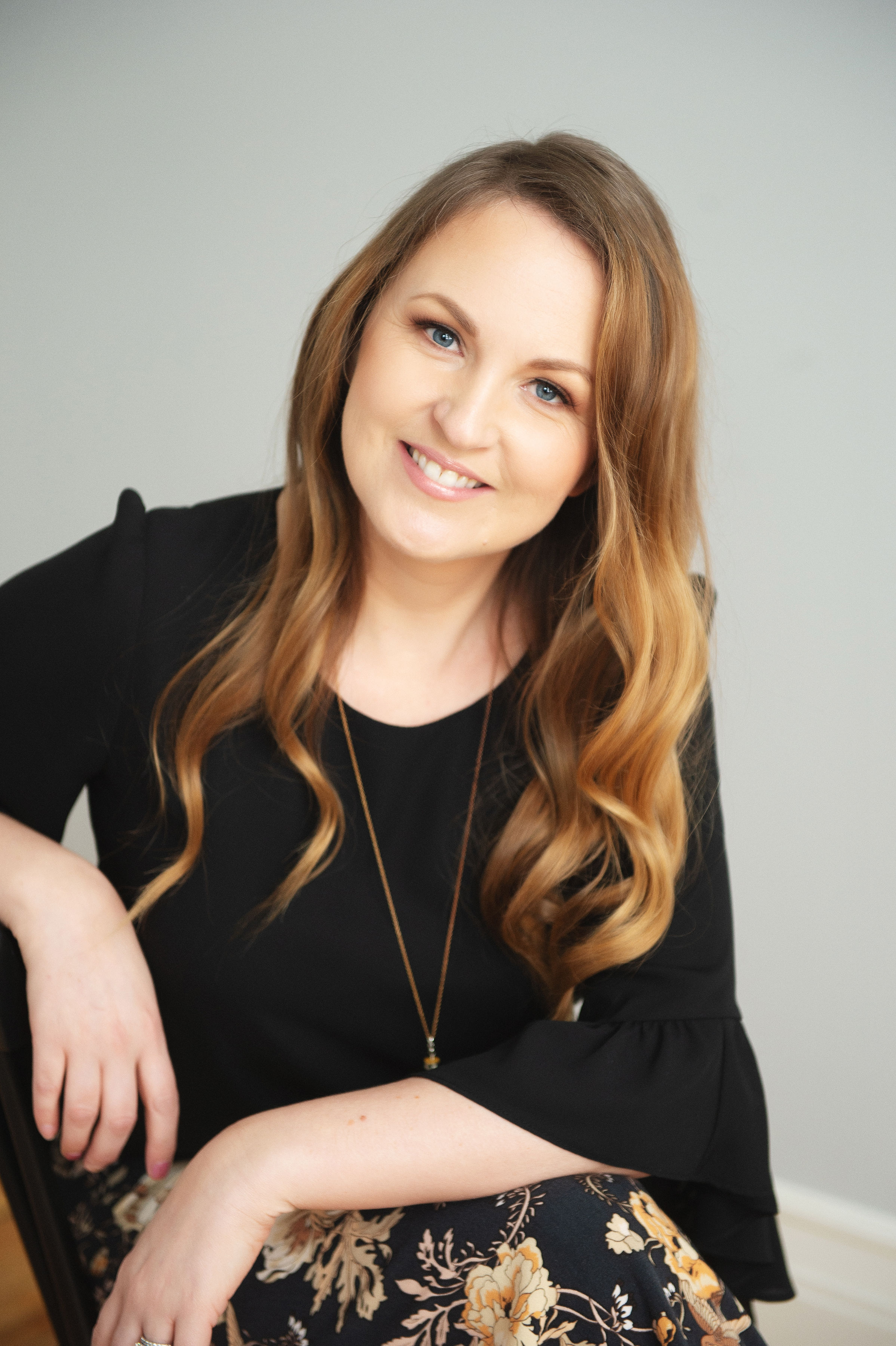
SSHRC Energy Security Partnership Project Manager
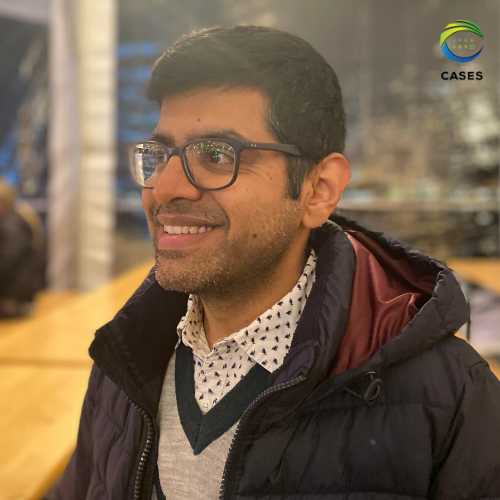
Vikas has a PhD from the Institute for Resources, Environment & Sustainability at University of British Columbia. He has worked on energy poverty in developing countries. His doctoral work includes addressing challenging energy access problems through modeling based methods, and conceptualizing (energy) justice concerns in the context of (lack of) electricity provision. He completed his Mechanical Engineering (with a Masters degree in Energy Technology) education in 2009 from Indian Institute of Technology Madras. He worked in the area of climate change consulting for 3 years, covering renewable energy and energy efficiency projects across India and South East Asia, followed by 2 years in the area of business research.
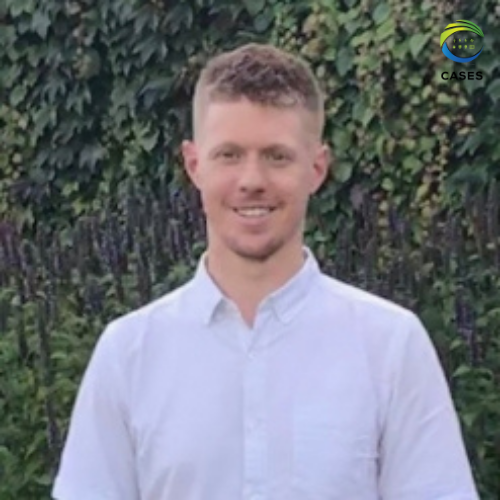
Chad Walker (he/him) is an interdisciplinary environmental social scientist with interests around justice, equity, and public support for low-carbon transitions. Recent research includes studying the impact of environmental justice in shaping support for wind energy, critically investigating the meaning of community energy, and using diverse methodologies to better understand reconciliation, autonomy, and pathways for improved health via Indigenous-led renewable energy development (see A SHARED Future). During his time in the United Kingdom, he studied user engagement and public participation through the development of Smart Local Energy Systems (see EnergyREV). Through these projects, he has used a combination of qualitative and quantitative approaches, spurring a keen interest in the ways we think about and practice mixed methods. Chad has a PhD from Western University (2017) and worked as a Postdoctoral Research Fellow at Queen’s University (2017-2019) and the University of Exeter (2019-2021). In June 2021, Chad joined the University of Saskatchewan as a Postdoctoral Research Fellow with the SSHRC-funded Community Appropriate Sustainable Energy Security (CASES) initiative.
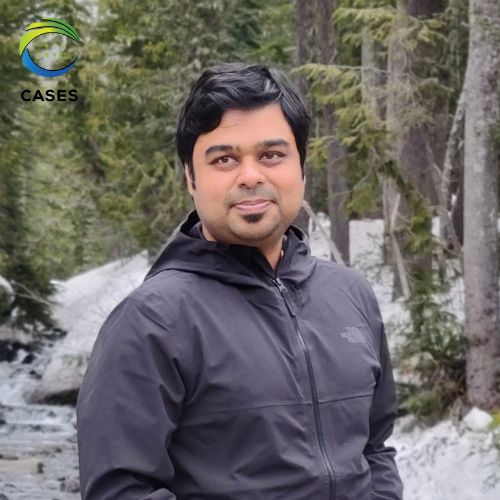
Saurabh Biswas is a sustainability scientist and energy systems engineer studying societal transformations and sustainable development linked to energy transitions. His research explores the energy-poverty nexus among marginalized and vulnerable groups of people. He has worked collaboratively with community organizations, grassroots entrepreneurs, university partners and international development agencies in seven countries to co-develop research-based programs to leverage renewable energy technology for local sustainable development. Prior to USask, Saurabh worked at the Pacific Northwest National Laboratory, conducting multi-disciplinary research for the US Department of Energy. He has taught courses on energy justice and grassroots energy innovation at Portland State University and Arizona State University. Saurabh holds a PhD in Sustainability from Arizona State University (USA) and Masters in Energy Systems Engineering. He is the co-founder of the open knowledge repository on community energy initiatives ‘Let Communities Lead’. Saurabh joined CASES in August 2023.

Silas Obeng Asante (born and bred in Ghana), who is a Development Planning and Management Expert, Spatial Analyst (GIS and Remote Sensing), Field Researcher (Geography), Environmental Planner, and Sustainable Natural Resource Advocate, is currently enrolled to obtain his second Master of Science degree program with the Department of Geography and Planning, University of Saskatchewan, Canada. Silas previously holds a Master of Science degree in Development Planning and Management from the Kwame University of Science and Technology, Ghana, and a Bachelor of Science in Geography and Regional Planning from the University of Cape Coast, Ghana. As Field Research Assistant, Silas has worked with International organizations and national institutions such as UNFPA/UNICEF, International Cocoa Initiative, Institute for Housing and Urban Development Studies at Erasmus University, Ghana Cocoa Board, BIRD – KNUST, Ghana Statistical Service, and Guinness Ghana Brewery Limited (GGBL) as part of his volunteering field works, and baseline surveys in different regions of Ghana. Silas was appointed as a Graduate Assistant (Contract) in the Department of Planning, Kwame Nkrumah University of Science and Technology – Ghana, and as a Teaching Assistant (National Service) in the Department of Geography and Regional Planning, University of Cape Coast – Ghana. His previous post graduate thesis topic was "Monitoring and analyzing the urban growth processes of Awutu Senya Municipality using Geographic Information System (GIS) and Remote Sensing.” Silas joined the CASES team in September 2022, and his research focused on the technical assessment of renewable energy development potential in rural and indigenous communities in northern Saskatchewan.
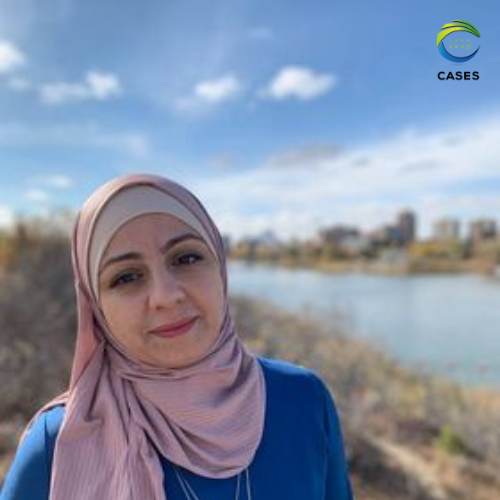
Arwa finished her B.Sc. in Earth and Environmental Sciences and became a dedicated science teacher. But her dreams did not stop there, and she completed a Master’s degree in science education. Despite her love of teaching, she wanted to learn more about environmental topics. She wanted to become a researcher in the field of renewable energy, so she continued her education and got a second Master’s degree in Renewable energy. Her Master's research focused on future scenarios of greenhouse gas emissions by changing scenarios of electrical system expansions in Jordan. Her research for the CASES project focused on the social dimension of energy security, specifically youth in Indigenous communities. Her background as a teacher and her experience in renewable energy made a winning combination for her work in CASES.
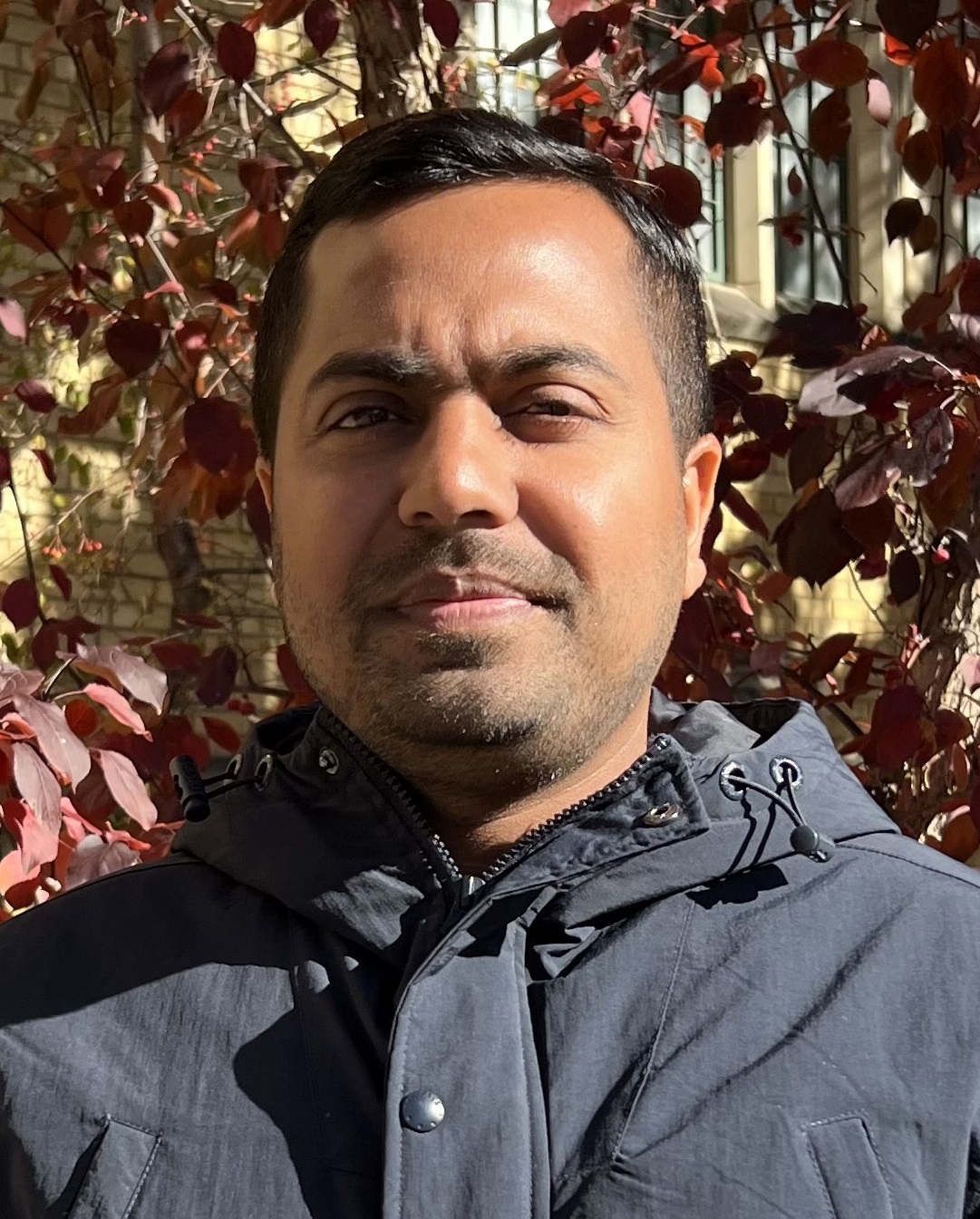
Didar is from Bangladesh and joined the Community Appropriate Sustainable Energy Security (CASES) team in September 2022. Prior to joining CASES, he was engaged in several research projects and also worked in multiple industries as an environmental management professional. He earned his BSc and MSc degrees in Environmental Sciences and is currently enrolled in the Master of Science degree program under the Department of Geography and Planning at the University of Saskatchewan. His research for the CASES Partnership project focused on the technical assessment of renewable energy development potential in the rural and indigenous communities in northern Saskatchewan.
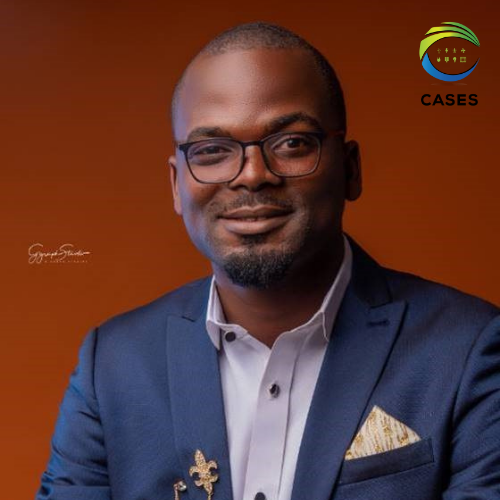
Abraham has 5 years’ experience managing development programmes across 4 African countries. He has previously managed economic development programmes for the UK Department for International Development (DFID) and projects sponsored by the Citi Foundation, Ford Foundation & Chinese Embassy. He has contributed technically to rural electrification projects in Nigeria, working with the Nigerian Power Transmission Agency. Abraham graduated with a Bachelor’s degree in Physics from Nigeria, where he finished top of his class & faculty and was a beneficiary of the MTN Foundation Science & Technology scholarship throughout his undergraduate years. He has professional certifications in Impact Evaluation, Energy Economics, and Local Economic Development, from the Erasmus University Rotterdam, Georgetown University and Sciences Po. Abraham is a TEDx speaker and serves as a guest facilitator at the Lagos Business School, Nigerian Economic Summit Group, LEAP Africa Social Innovators Programme. He was particularly interested in working with multidisciplinary research teams focusing on community energy planning and social mobility dimensions of energy transitions.
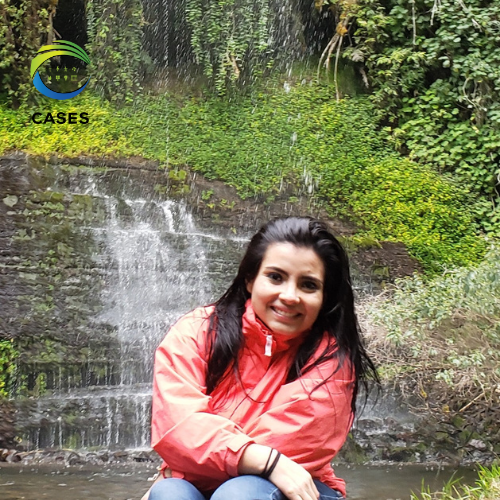
Daniela comes from Ecuador and is a Master's in Environment and Sustainability (MES) student at the University of Saskatchewan. Her former studies include an Environmental Management Engineering degree, an International Business Engineering degree and a Trilingual A.A.S. in Business Administration and Economics. As a professional, she has worked in various German multinational companies, specializing in Supply Chain Management and Project Management. Her engagement towards the development of her region has led her to visit and actively participate in several social projects aimed to help the isolated communities and the rural indigenous populations in the Andean region and the Amazon rainforest of both Ecuador and Bolivia. Daniela’s research interests include the non-market valuation methods that might be used to assign an accurate monetary value to the environmental and social benefits of community-based renewable energy systems.
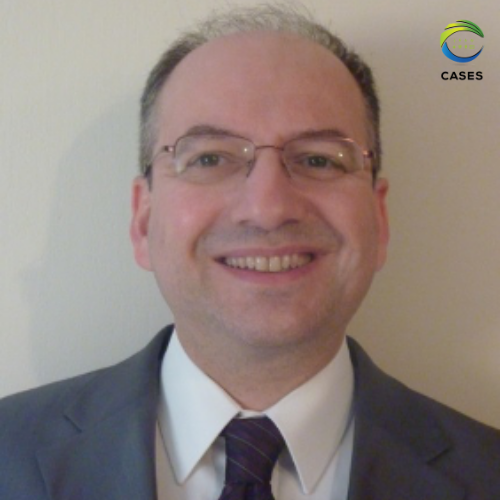
Hakan grew up in Turkey, where he earned a B.Sc. degree in physics from the University of Ankara. He came to the United States to learn English at the University of Tulsa and get a master’s degree in physics, where he did research in nuclear physics as a teaching fellow at Creighton University in Omaha, Nebraska. He also received a master’s degree in science teaching from the University of Nebraska - Lincoln. He has been teaching physics at a public secondary school in Omaha, Nebraska, since 2004. Hakan’s interest in both the physics and social aspects of energy, environment and sustainability started when he did summer research fellowships at U.S. national and university laboratories. It inspired him to create a course on energy applications and sustainability for his school. His interest also took him to New Zealand as a Fulbright Scholar to learn about energy and environmental sustainability from scientific, cultural, and policy aspects. His focus for his Master's was to design an energy model for the Peter Ballantyne Cree Nation and Gwich’in Communities.
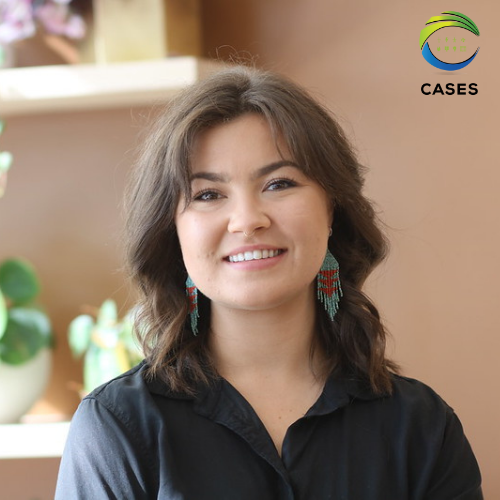
Tansi, my name is Sage Broomfield. I am a non-status nehiyaw iskwew and current master's of Indigenous Development student at the University of Winnipeg. My familial and cultural ties are to the sweetgrass fields of Treaty 8 and 6 territories, with my father, my late Kohkum, and much of my paternal family being registered to the Sawridge Cree First Nation. I grew up between my ancestral lands and as a guest on unceded Coast Salish territory on Vancouver Island, with my English Irish Mother. In May of 2020, I completed a Bachelor of International Relations at the University of British Columbia, where I took a keen interest in alternative energy sources. I was particularly interested in energy sovereignty and the social and political empowerment that could come through the reclamation of energy in Indigenous communities.
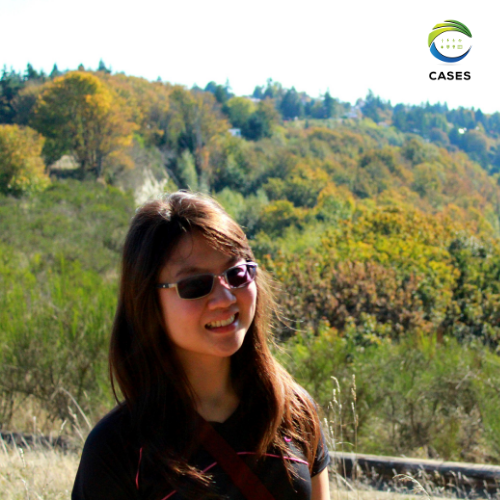
Brigitte is currently a Master's in Environment and Sustainability (MES) student at the University of Saskatchewan. Her research will focus on community-based energy systems within Indigenous communities in Saskatchewan, as part of the Energy-Poverty nexus. Brigitte grew up in the Philippines where she experienced working in the renewable energy sector as a Business Development Officer and Capacity Development Associate. She has worked with nonprofits, national and local government agencies, and international development agencies in the Philippines and the USA to promote renewable energy for development. She completed her Professional Science Master's in Solar Energy Engineering and Commercialization from Arizona State University.
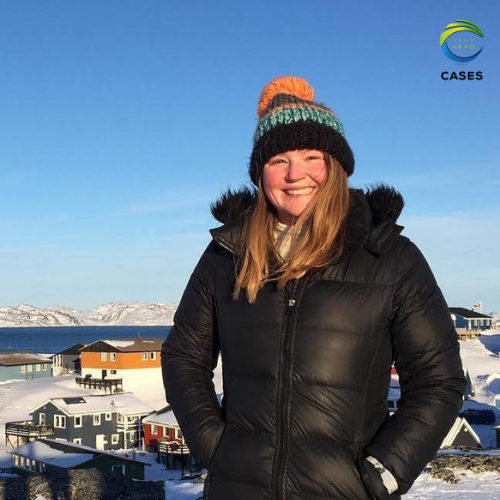
Josie is a graduate student in the School of Environment and Sustainability. She holds a Master of West Nordic Studies, Governance and Sustainable Management from the University of the Faroe Islands, awarded in 2020. Her undergraduate studies were completed at the University of Missouri, from which she was awarded a Bachelor of Economics in 2018. While studying in the Faroe Islands, Josie developed an interest in Arctic studies and sustainable development of the Arctic region. This interest inspired her to complete a semester-long exchange at the University of Greenland and an internship at the UArctic Thematic Networks and Research Liaison office at the University of Oulu in Finland. Josie was excited to bring her backgrounds in Arctic policy and economics together and was eager to explore these topics further as part of the CASES project.

Bobbie Balicki is an M.Sc. student in the University of Saskatchewan's College of Agriculture & Bioresources (Department of Agricultural & Resource Economics). Bobbie grew up in Prince Albert and has family roots in Northern Saskatchewan. After completing her degree in Renewable Resource Economics and Policy at the University of Saskatchewan in 2012, she spent over four years in the Indigenous business development sector, working on over 150 business planning projects with Metis entrepreneurs and economic development organizations throughout Saskatchewan. Bobbie has also worked in the electrical utility sector as an Environmental and Communications Specialist in both the public and private sectors. She brought a wealth of experience on the social and economic impacts of northern development and how the utility sector could play a critical role in Northern, Indigenous, and Remote communities. Her career passion is in stakeholder engagement and policy and program analysis using benefit-cost analysis (BCA).
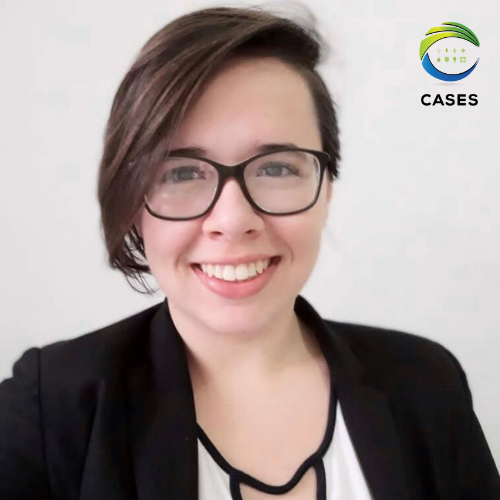
Renata is a geologist enthusiastic about the energy sector. Her career in the energy sector started in 2015 while working on research projects with leading petroleum companies in Brazil. In 2019, she started exploring the renewable energy sector at the University of Saskatchewan where she received a master’s degree from the Department of Geography and Planning and worked as a research assistant at the Johnson Shoyama Graduate School of Public Policy. Her research portfolio includes studies on energy policy, Indigenous and local renewable energy projects and renewable energy clusters. Currently, she is a Senior Policy Analyst in Saskatchewan’s Ministry of Energy and Resources working with Indigenous engagement and participation and Carbon Capture and Storage.

Rhys completed both a Bachelor of Science Honours in Environmental Earth Science and a Master of Science in Geography at the University of Saskatchewan. Rhys’ undergraduate research focused on wind energy environmental assessment requirements and processes across the Canadian jurisdictions. Through the CASES project, her graduate research focused on attributes of socio-technical baseline capacities for energy transition in the north, and opportunities and challenges for Gwich’in communities in the Northwest Territories. Rhys was a two-time recipient of the Indigenous Graduate Scholarship through the College of Arts and Science at the University of Saskatchewan. Currently Rhys is an Environmental Planner at Stantec.
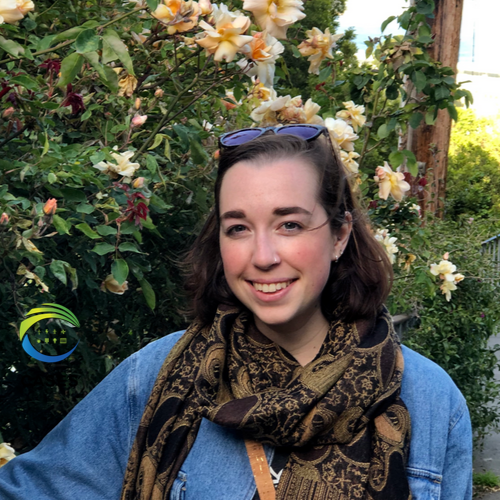
Kate completed both a BA in Environmental Studies and a Master's in Development Practice in Indigenous Development at the University of Winnipeg. Through the CASES project, her graduate research focused on public participation in state-level energy strategies as well as the licensing processes for hydroelectric development in Canada. Following an internship with the Alaska Center for Energy and Power (ACEP) in the summer of 2021, Kate began a research fellowship with ACEP and CASES where she continues to expand her knowledge of energy policy and renewable energy in the north.
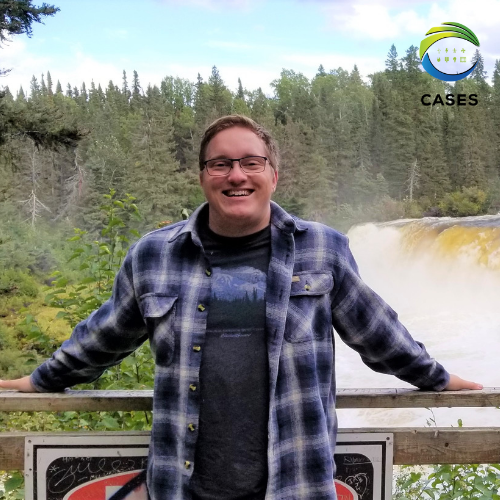
Michael recently graduated from the University of Winnipeg with a B.A. Honours in Geography. He is interested in the nexus between energy, land use, and resilience. His undergraduate thesis developed the foundations of a community energy plan for Churchill, Manitoba by providing energy consumption data and facilitating a vision and priorities to guide future energy planning. It also served to inform a new regional scale definition of energy security. Working with Dr. Patricia Fitzpatrick, Michael has researched small-scale renewable energy in Manitoba and how local agency can lead to a diverse energy system. In the fall, Michael will be starting a master’s in planning at the University of Guelph, where he will focus on how provincial land use policies can contribute to a low carbon energy transition.
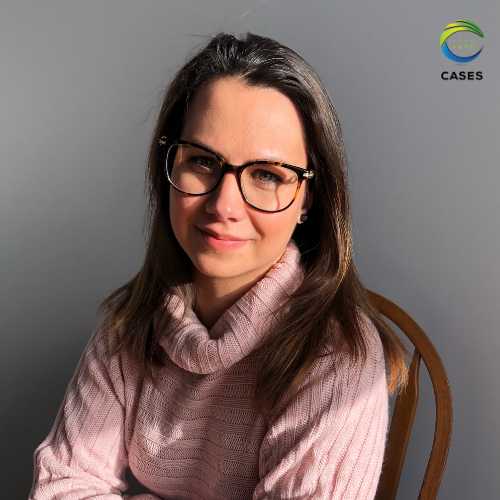
Camila is Master’s student in the Geography and Planning department at the University of Saskatchewan. Her project is focused on environmental impact assessment, more specifically on identifying environmental and socio-economic impacts and their mitigation actions from wind energy projects in western Canada. Camila completed her B.Sc. honours in Business and Economics in Brazil. Her focus was on managing impacts from government projects in remote communities in Brazil and Spain. In addition to her thesis project, she also works as a research assistant for Prof. Greg Poelzer studying policies for renewable energy projects in partnership with indigenous communities and energy security.
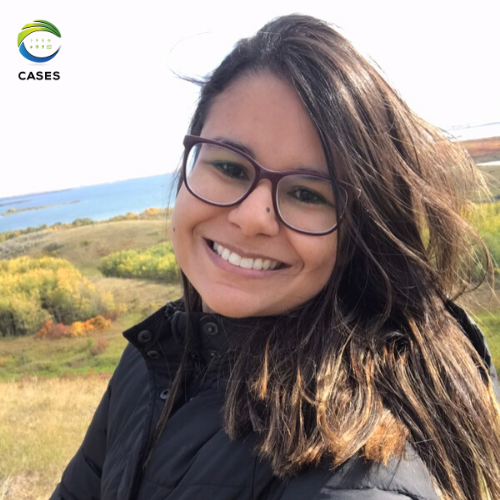
Layane is a Brazilian environmental engineer who is now pursuing a professional master's degree in Environmental and Sustainable Management at the University of Saskatchewan. Layane is currently developing a project for First Nations Power Authority (FNPA) in partnership with CASES where she is creating an education hub on their website, which is highly relevant due to the current COVID19 pandemic. This project aims to develop tools and resources for renewable energy and energy efficiency education with Indigenous communities.
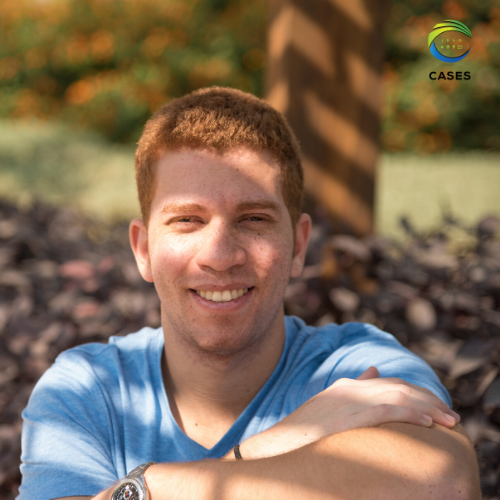
Ali has a BSc in Mechanical Engineering and a minor degree in Economics from the American University in Cairo (AUC). He is currently pursuing a professional master’s degree in Environmental and Sustainable Management and is a prospective master’s student of Economics (Fall 2020). He is currently working on a project in partnership with CASES looking at energy security in northern and indigenous communities in Saskatchewan.
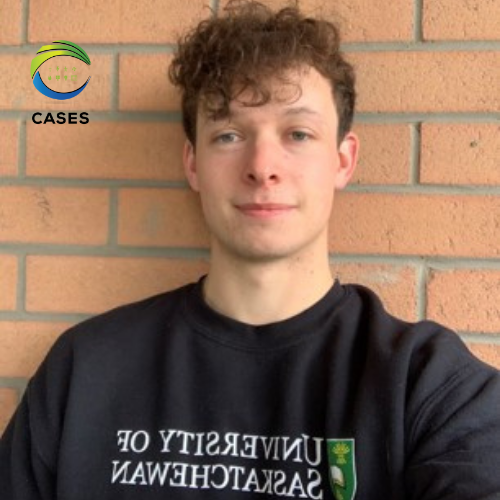
Rory is in his final year of the Master of Sustainability - Energy Security program at the University of Saskatchewan. Previously, he completed a Bachelors in Science in Environmental Biology at the University of Saskatchewan along with a certificate in Biological Research. Rory works as a fundraising coordinator and proposal writer for Student Energy, a global non-profit that provides energy education, training programs and project funding for young professionals around the world. Rory's graduate research project is examining the development of Canada's biomass energy industry as it relates to Northern remote communities.
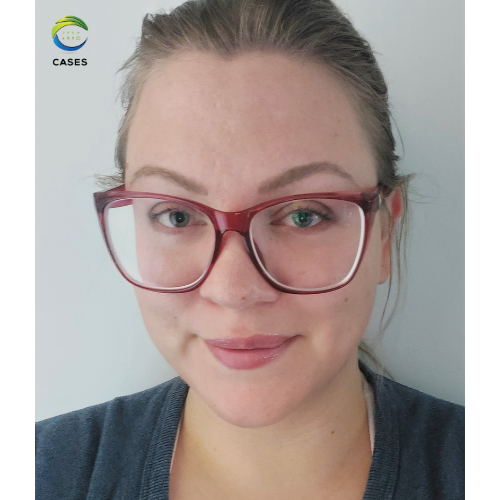
Stephanie attends the University of Saskatchewan and is in her final year of her Bachelor of Arts and Science (Honours) in Environment and Society. In the second year of her degree, she had the opportunity to live and volunteer in rural Dominican Republic. The farming cooperative where she spent much of her time volunteering aimed to improve the quality of life of rural communities. One of the ways that they did this was through improving energy security. Stephanie was able to see first-hand the impacts that these initiatives had, leading to her keen interest in this topic. She had the opportunity to be part of the CASES team while doing her Honours project on community energy; an opportunity for which she is extremely grateful. She is looking forward to contributing to an area which she is enthusiastic about and is excited about all the knowledge and experiences she will gain in doing so.
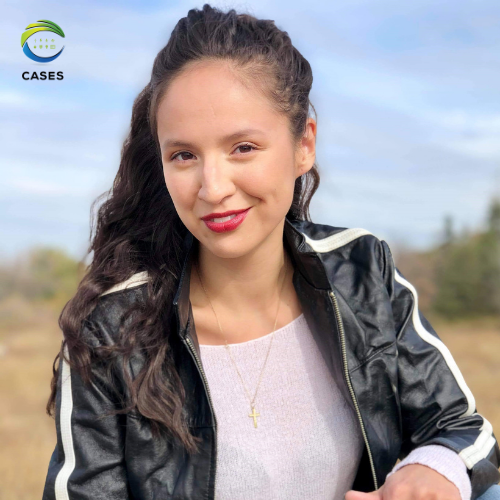
Natasha is a proud mother of two boys and has spent the last 6 years devoting herself to staying fit, healthy, and happy, while maintaining the livelihood of her family. She graduated from University of Alberta with a bachelor’s in environmental-civil engineering and has 4 years experience working in the geo-environmental consulting industry throughout all areas of Alberta. Her real home is the prairies and forests of Saskatchewan, from which she has Cree and Anishinaabe family all over the province, on reserves and in the cities. She has a deep love for her people and will do anything required to forward the interests of maintaining indigenous identity and lifestyles, beginning with energy security for remote Indigenous communities.
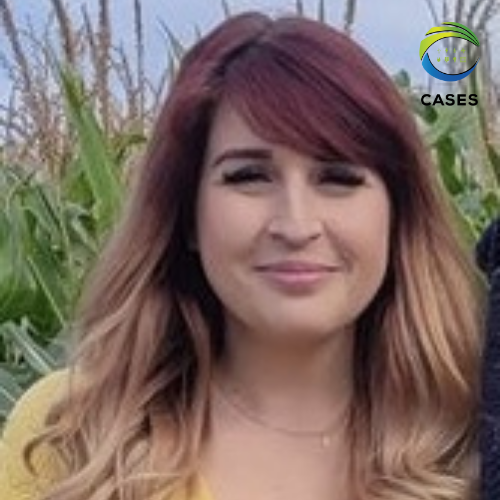
Danielle Poulin is a member of the Lac La Ronge Indian Band and a Master’s in Sustainable Environmental Management (MSEM) student at the University of Saskatchewan. She is a graduate of the College of Education at the University of Saskatchewan and currently works as a grade 8 Elementary teacher. She lives in Prince Albert, Saskatchewan, and is a proud mom to three young boys. She is passionate about finding clean energy solutions and addressing energy poverty within Indigenous communities.
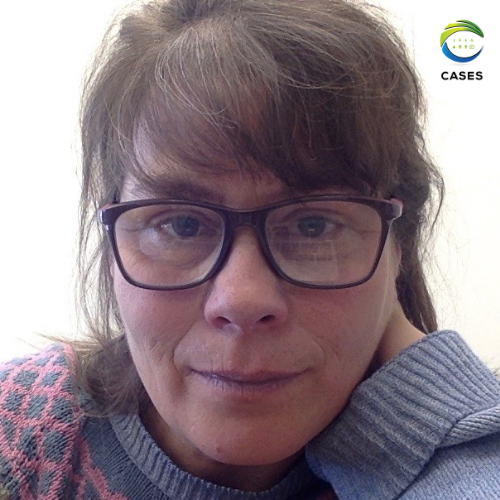
Rosa is a student of the University of Saskatchewan’s Master of Sustainability program, following the Energy Security stream. She completed a Bachelor of Science degree with an Honours Specialization in Wildlife Biology at the University of Guelph and began her career working on wildlife co-management in the Yukon. In her current position as Energy Coordinator with the Vuntut Gwitchin Government, Rosa is part of a team working to develop community-owned, clean energy alternatives to diesel generation for the Vuntut Gwitchin First Nation community of Old Crow, Yukon.
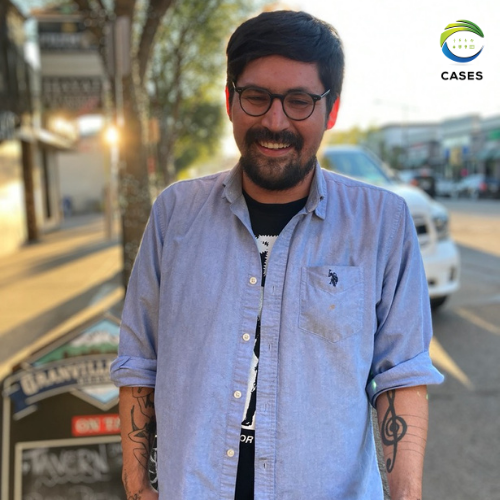
Jordan Koe is a member of the Tetlit Gwich'in First Nation and a graduate of the Faculty of Native Studies at the University of Alberta. He is passionate about Harm Reduction, Housing, and First Nation Energy Governance. Currently working as the Housing Manager at Tsawout First Nation in Victoria British Columbia, you can hear Jordan on his radio show Land Back Radio on CFUV 101.9 FM showcasing indigenous punk music from across turtle island.